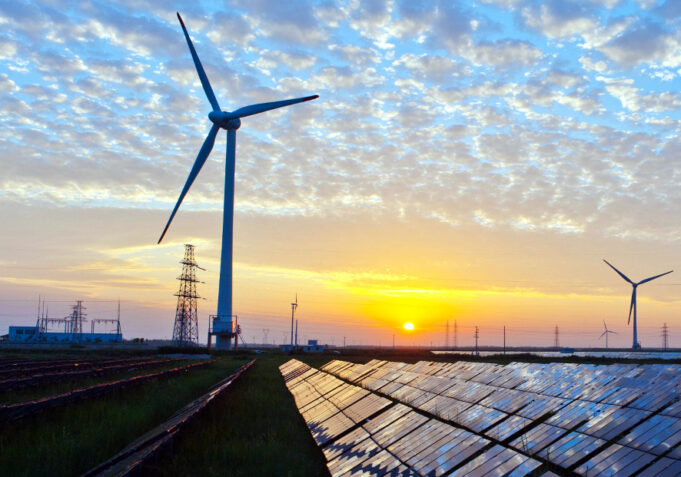Renewable energy sources offer a pathway to a more sustainable and environmentally friendly future, providing clean, abundant, and inexhaustible alternatives to fossil fuels. Let’s explore the importance of renewables in addressing climate change, promoting energy security, and driving economic growth.
Addressing Climate Change
Renewable energy plays a crucial role in mitigating climate change by reducing greenhouse gas emissions and limiting the reliance on fossil fuels. Unlike coal, oil, and natural gas, renewable energy sources such as solar, wind, hydroelectric, and biomass produce little to no carbon dioxide emissions during electricity generation, helping to stabilize global temperatures and combatting the adverse effects of climate change.
Promoting Energy Security
Investing in renewables enhances energy security by diversifying the energy mix and reducing dependence on imported fossil fuels. Unlike finite fossil fuel reserves, renewable energy sources are abundant and widely distributed, allowing countries to harness their domestic resources to meet energy demand. This reduces vulnerability to supply disruptions, price fluctuations, and geopolitical tensions associated with fossil fuel dependence.
Driving Economic Growth and Job Creation
The transition to renewables presents significant economic opportunities, driving growth and job creation across various sectors. Renewable energy projects, such as solar and wind farms, require skilled labor for installation, operation, and maintenance, creating jobs and stimulating local economies. Additionally, investments in renewable energy infrastructure and technologies spur innovation, attract capital investment, and catalyze economic development in communities worldwide.
Fostering Innovation and Technological Advancements
Renewable energy technologies continue to evolve rapidly, driven by ongoing innovation and research efforts. Breakthroughs in solar photovoltaics, wind turbines, battery storage, and smart grid technologies are making renewables more efficient, reliable, and cost-effective than ever before. These advancements are expanding the potential of renewables to meet growing energy demand and address the challenges of integrating intermittent energy sources into the grid.
Empowering Communities and Ensuring Equity
Renewable energy empowers communities to take control of their energy future, democratizing access to clean and affordable electricity. Distributed renewable energy systems, such as rooftop solar panels and community-owned wind turbines, enable individuals, businesses, and municipalities to generate their own power, reduce energy costs, and contribute to local resilience. This decentralized approach fosters energy equity and empowers underserved communities to participate in the transition to renewables.
Conclusion
In conclusion, renewables are essential for building a sustainable energy future that safeguards the planet, promotes prosperity, and empowers communities worldwide. By harnessing the power of solar, wind, hydroelectric, biomass, and other renewable sources, we can mitigate climate change, enhance energy security, drive economic growth, foster innovation, and ensure equitable access to clean energy for all. As we embrace renewables, let’s collaborate across sectors, invest in infrastructure, and enact supportive policies to accelerate the transition to a renewable energy future. So, let’s discuss: What role do renewables play in your vision for a sustainable future? How can we leverage renewable energy to address pressing environmental and social challenges? Share your ideas, and let’s work together to harness the transformative potential of renewables for a brighter tomorrow.
Apart from this, if you are interested to know more about Trends Will Change The Way We Use Technology then visit our TECH category







